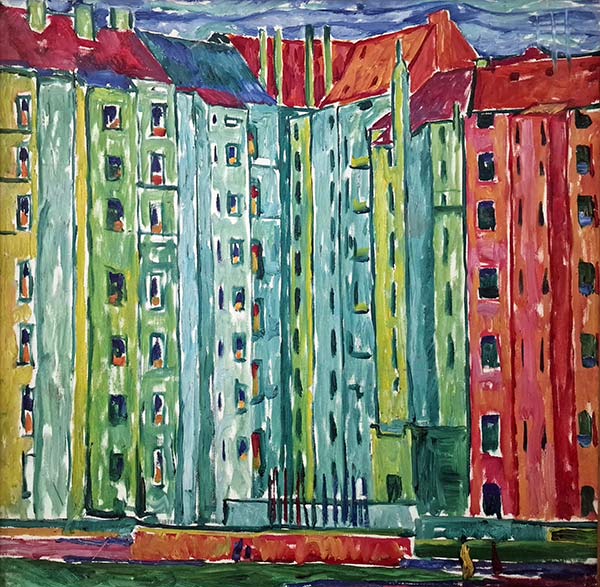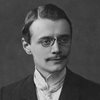Subtotal: $
Checkout
Obstacles to Christian Community
What are the biggest obstacles to community? And how can they be overcome?
By Eberhard Arnold
February 6, 2025
From Called to Community: The Life Jesus Wants for His People.
If everybody wants to be in the right, or even if only one person wants to be in the right, it is impossible to live in community. That is egotism or self-love. Touchiness, like opinionatedness, is another form of self-love.
We must seek what brings us together, what is the same for us all. We must think of others with hearts filled with love. If only we could come to the point where we recognize that we are all in the same situation, all in the same state! That we are all equal, and very similar in our situations, is quite amazing. When that becomes clear to us, much of our opinionatedness, our wanting to be in the right, and our touchiness falls away. But that is not yet all. That does not remove the obstacles.
Worst of all is what afflicts people who think about themselves the whole day long: they suffer from a widespread and deadly disease. It destroys body, soul, and spirit. People who have themselves at the center, who relate everything to themselves and see everything from their own point of view, are seriously ill. They are mentally disturbed. They are far from becoming truly human, from becoming true brothers and sisters. They are lost even in the midst of a community household.
All of these things are obstacles to community: touchiness, opinionatedness, self-love, self-centeredness. To have a higher opinion of oneself than of others is a deadly poison. Whoever still does this is completely incapable of community. He or she will not be able to experience the unity of the great cause. This is what is crucial. Of course, it is a help to think of others and of their situation and to look for the best in them. That will help us not to think of ourselves as better than others, but it is not the main thing.
God’s cause is a cause for which we are not needed. … It is not just that I am unimportant; I am an obstacle.
We are still inclined to see the shortcomings of others far out of proportion and thus forget that we ourselves are weak human beings. We should not always try to improve on what another does wrong. We must become reconciled to people’s imperfection.
This self-centeredness is a lying spirit; it is out-and-out false. People who have such a high opinion of themselves that they cannot admit a mistake are living in the deepest untruthfulness and insincerity. Egotism must be condemned, not just because it does not fit well in community or because it is morally wrong, but because it is lying and death. It is poisoned through and through and brings destruction. It is the mortal disease. The quarrelsome spirit that destroys community comes from this mortal disease of the soul. Self-centered people are mortally sick. They must be redeemed.

Walter Ophey, Green Back buildings, 1921, oil on canvas.
Those who turn around themselves do not know that Christianity has an objective content, that it is actually a cause for which we can completely forget ourselves with our own little egos. Self-importance … leads to a hypocritical attitude. We must be freed from all posing, from all affected holiness, otherwise we are utterly lost. The people who are most endangered are the artificial saints who take such pains, yet just these efforts are the root of their hypocrisy. They see God from their own point of view and make God relate to themselves. That is their undoing, because it is utterly untrue. For I am not the truth, and because I am not the truth I cannot and may not place my own person – not even as a Christian – in the center of my thoughts. I would simply make myself an idol. The great cause must be in the center. We must come to true faith in God and the church.
Redemption from the life of self – from wanting to be in the right, from imposing our own ways, from our unfitness for community, from this deadly disease that will be our ruin – can come only through a cause that exists completely outside of our own selves. God’s cause is a cause for which we are not needed. We are not indispensable. It is not just that I am unimportant; I am an obstacle. I am an adversary of the cause. Redemption cannot begin until we each recognize this and see ourselves thus in the light of the cause – as adversaries, especially in our own piety. Until that happens we are merely deluding ourselves with our own cramped efforts.
We human beings can recognize light only in contrast to shadow and darkness. We can grasp the cause only through an awareness of its opposite and of its adversaries, for we are not gods but mere mortals. Why do torches give us so much joy? Because they are lit in the night and we become an illuminated circle in the dark. It is the dark background that makes the shining circle of our common life visible at all and allows it to speak to our hearts. Those who are still in love with themselves cannot recognize the cause, nor can those who are still in love with their own religious experience, with their own conversion and rebirth. Not until we see the great cause against the wretchedness of our own little being will we grasp its greatness.
Redemption from the life of self can come only through a cause that exists completely outside of our own selves.
In the early church the Holy Spirit came to those who finally recognized themselves as the murderers of the longed-for Messiah-King, as adversaries of the holy cause for which they had always striven. We are afraid of this awful awakening, especially if we have sought for years or decades to live in a certain holiness and suddenly must recognize ourselves as murderers and adversaries. That is hard but necessary. Paul was blinded when the Spirit came upon him, and it was no subjective exaggeration on his part but his deepest conviction when he said, “I am the worst of all sinners,” because he had been personally responsible for the persecution of the church of Jesus Christ and for the murder of the Christian martyrs. That was Paul’s experience, this tremendous contrast. He was a persecutor of the church of the Messiah, a persecutor of the kingdom of God. Not until he recognized this could he become an apostle of God’s cause. That same contrast helped the early Christians to realize that God’s cause is very different from what they had imagined; they would have never grasped it in any other way. Karl Barth says rightly, “The kingdom of God must strike us as being totally other, or it remains closed to us.”
This cause, which is totally other from what we ourselves are, alone can free us from our self-centeredness and touchiness. It can free us from our opinionatedness and our quarrelsomeness, from all that we complain makes us unfit to live in community. Unless we recognize ourselves as adversaries – even in our own piety – we will never grasp the greatness of this cause.
Already a subscriber? Sign in
Try 3 months of unlimited access. Start your FREE TRIAL today. Cancel anytime.







Linda and John wilson
This is an important article to think about, its insights are valuable. I think Loneliness is epidemic in America, perhaps the world. We all want acceptance and a place in some form of community. But too many want community on their own terms, which is the antithesis of community. I remember the 1960’s when communes started popping up and many of them almost as quickly shut down. I remember reading about one that was enjoying some success. There was a member who did not share in the work and the responsibilities of the commune because he considered himself an artist and that was the work he came to do. He did not last long. Perhaps there is a time and place in a community for pursuing what is important to us individually. I suppose this is part of the difficult balance. Being in community is not like being a part of the Borg, that entity in Star Trek that made everyone a part of giant “brain” of sorts. Or what Ray Kurzweil calls the “singularity” where humans and machines kind of merge as one, or at least that is how I understand him. I think this is the challenge of community. Our identity becomes a part of the community identity, but there still needs to be room for self expression and growth as individuals. I agree that egotism destroys community, but community cannot entirely destroy the self. I think this a difficult paradox to maintain. I am a retired school teacher and there is a sense that a school is a community. The purpose of the school has to come first and each member has to be dedicated to that goal. The courses I wanted to teach had to take the backseat to the courses the school needed me to teach. This is probably a very different kind of community from that described in the article, but it is equally true that ego has to serve the community or the work won’t get done. And students that don’t at some level become members in this way of the community will not likely learn what they need to learn. But the individuality of the individual student must also be nurtured. I think we grow best in community and in isolation, not being a part of any community, is a kind of death. Perhaps part of finding community is finding one where we can be a part of and serve the community as the individuals we are. There is something greater than ourselves that holds us together and to which we sacrifice, but there is also room to be the individuals we are. It is looking at things through many eyes that strengths and weaknesses can be recognized and weaknesses can be strengthened and strengths can be nourished. Cordially, J. D. Wilson, Jr.
Edward Solecki
"The great cause must be in the center. We must come to true faith in God and the church." Yes, but not through humility in the sense of treating yourself as an 'obstacle' or 'even in our own piety'. That is 'false humility" that Paul was warning us about as "having no value in restraining sensual indulgence". Col.2:22-23. First, "the great cause", the Kingdom of God, defined by Peter (2Ptr.1:1-11) as "being partaker of Divine nature", can only be reached by "epignosis" which is a spiritual understanding of the Scripture and application of it in your life. "Denying yourself" and "taking your cross daily" (what would be more appropriate to mention in this context than "obstacle") is just the very beginning of becoming disciple/student. Second, "true faith in God" is a vague notion. But Scripture is very precise about that; "The righteous person will live by his faithfulness" Hab.2:4 Faith on its own, whether true or false, is insufficient and even "dead" (Jam.2:20) but not the "faithfulness". Faithfulness to God gives life. And third, where does the Scripture require "faith in the Church"? I will appreciate the help in that matter.